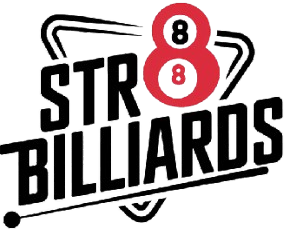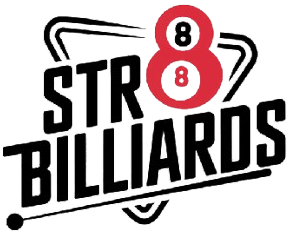If you’re interested in exploring the world of snooker and billiards, understanding the different types of cue sticks is essential. As a beginner, you might assume that all cues are similar and function the same way. However, the truth is that the type of cue stick you choose can significantly impact your game. Whether you aim to improve seriously or just want to enjoy casual play, knowing the differences among various cue sticks will help you perform better, feel more comfortable at the table, and enhance your overall enjoyment of the game.

In this blog we will explain why it is important to select the right stick, particularly if you are searching for billiards cues for sale near me or online.
What is a cue stick?
A billiard stick, also known as a cue stick or simple cue, is a tapered stick used to strike the billiard balls. It is made from composite materials or wood and typically measures around 57-59 inches in length. Though cue sticks appear similar at a glance, there are major differences depending on the gameplay, design preferences, and skill level.
Why the type of cue stick matters
Each cue stick is curated with a particular purpose in mind. The balance, tip size, material and weight affect how the stick behaves during the entire game. The balance of a cue stick refers to its distribution of weight, which can significantly impact your game. A well-balanced cue stick can provide better control and accuracy, while a poorly balanced one can lead to missed shots. Using the wrong cue for a particular game – or one that does not suit the playing style – can lead to missed shots, a less enjoyable experience, and poor control.
In case you are into English billiards, pool or snookers, understanding these differences can help you select wisely while browsing billiards sticks for sale.
Main types of cue sticks
Let us explore the usual types of cue sticks used in billiards and snookers.
- Length: typically, 57-58 inches.
- Tip size: Smaller (near about 9-10mm)
- Weight: Lighter than pool cues
- Best for: Control and precision on smaller balls as well as tighter pockets.
Snooker cues are usually lighter and thinner. They have a small tip that helps with spin control and accuracy, which is required in snooker. In case you are serious about snooker, investing in a proper snooker cue is a smart move.
- Pool cues or American Billiards
- Tip size: Larger (almost 12-13 mm)
- Weight: Heavier (18-21 oz)
- Best for: Strong follow-through shots, powerful breaks
Usually, these pool cues are designed for speed and strength. Their larger tips and thicker shafts are made to manage the heavier balls utilised in pool games. If you play 8-ball or 9-ball often, this is the ideal cue for you.
- Length: same as the snooker cues
- Tip size: Almost 10 mm
- Weight: Balanced for control and fitness
- Best for: English billiards which combines elements of snooker and pool
These cue sticks are a hybrid of pool and snooker cues. They are customised for the unique gameplay of English billiards, demanding both precision and a touch of power.
Cues construction: what to consider
When you are browsing billiards cues for sale near me or online, some key components you should always keep in ming:
- Shaft material: The Majority of the cues are made from ash or maple wood. Maple is smoother and usually used in pool cues, while ash is preferred for snooker.
- Tip type: Soft tips enable more spin as well as control, whereas hard tips provide more substantial impact but less cue ball control.
- Joint type: This is where the cue breaks apart. Metal joints offer durability, while wood-to-wood joints provide a better feel.
- Grip/wrap: Some cues possess Irish linen wraps or leather grips that enhance handling. Select based on both comfort and feel.
How to select the right cue stick for you
Selecting the right cue based on different factors:
- Game type: Identify whether you want to play pool, snooker or English billiards.
- Skill level: Beginners can select cues with larger tip for simple control.
- Height and arm length: Make sure you cue length matches with your reach.
- Play style: Do you prefer fitness shots or power breaks?
- Budget: Find quality billiards sticks for sale within your budget, so you can shop without compromising quality.
Why buy from A&C Billiards?
A&C Billiards and Barstools view themselves as players rather than just a store. They offer a carefully curated selection of billiards cues tailored to your skill level and gaming preferences. Whether you are a beginner or an experienced player, we are here to help you find the perfect cue that suits your needs.

If you’re looking for billiards cues for sale near you, look no further. The expert team is happy to advise, let you test the few models in-store, and guide you to the perfect stick.
FAQs
- Can I use the same cue stick for both snooker and pool?
Yes, technically, but it’s not advised. Pool cues are made for greater force and heavier balls, whereas snooker cues are made for smaller balls and smaller pockets. - How do I know what tip size is right for me?
For snooker, smaller tips (9–10 mm) provide superior spin and control. For pool games that demand greater force and surface area, larger tips (12–13 mm) work better.
- What’s the average cost of a good cue stick?
Beginner cues of good quality start at about $50. Depending on the material and craftsmanship, more sophisticated or personalized cues can cost anywhere from $100 to several hundred dollars.
4. Do I need different cues for breaking and playing?
Yes. Break cues are usually heavier and have tougher points since they are designed for forceful shots. The purpose of playing cues is to improve control and accuracy.


